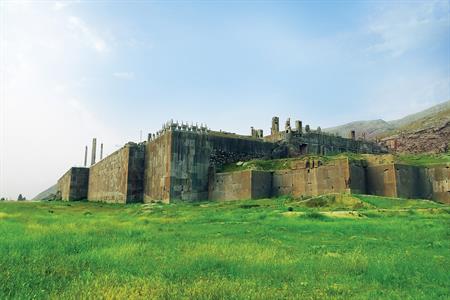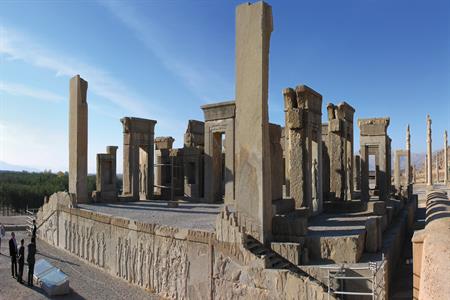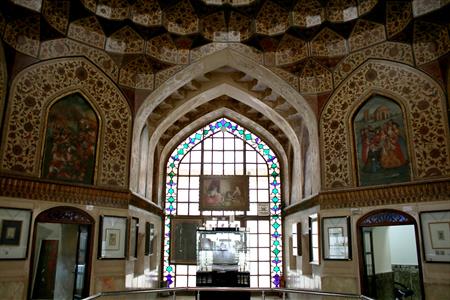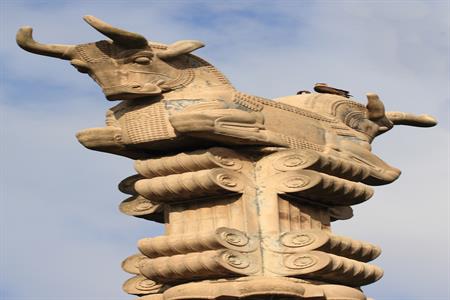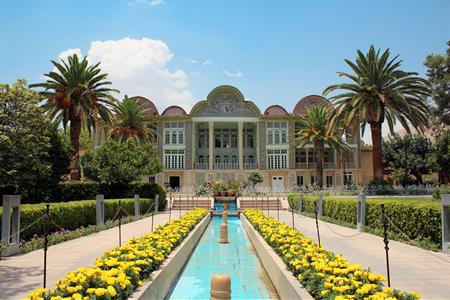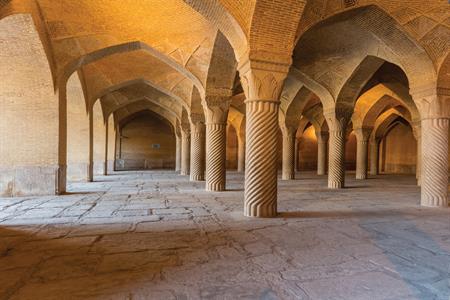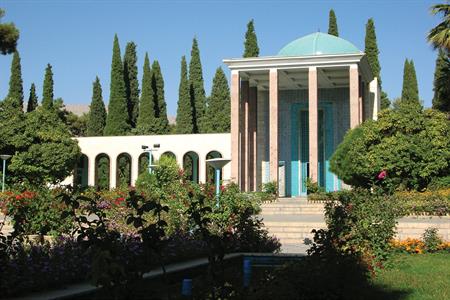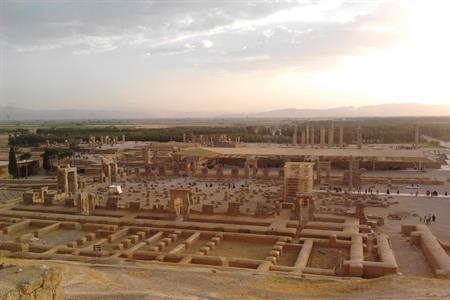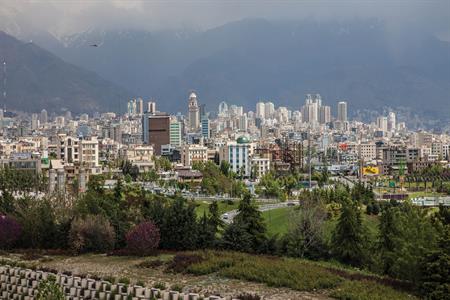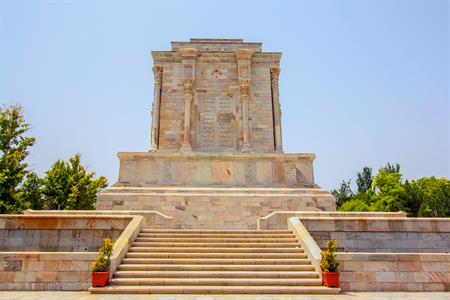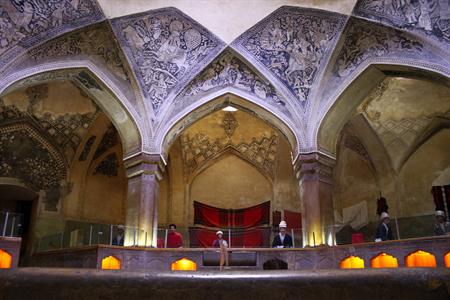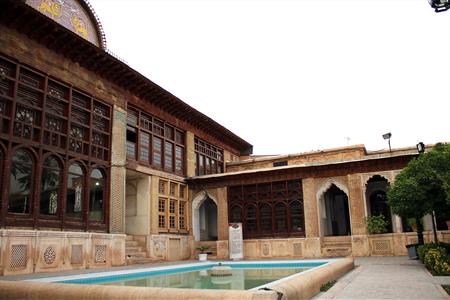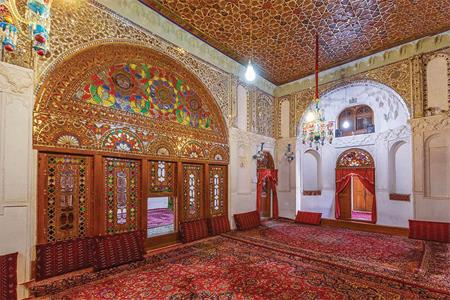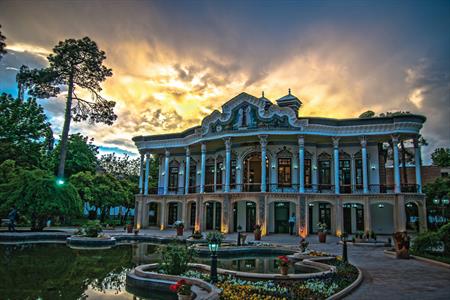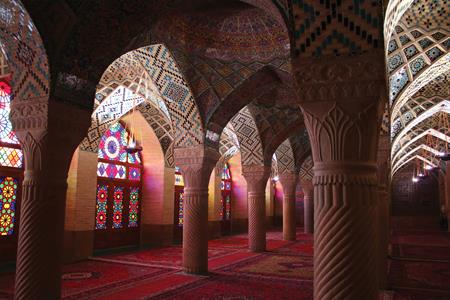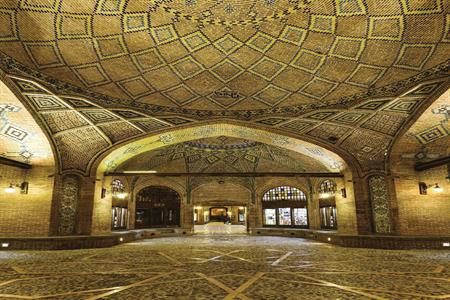IRAN
An (Islamic Republic of Iran) is a country in southwest Asian, neighboring Turkmenistan, Azerbaijan and Armenia on the north, Afghanistan and Pakistan on the east, and Turkey and Iraq on the west. Iran holds an important position in international energy security and world economy as a result of its large reserves of petroleum and natural gas.
Farsi, the official language of Iran, is historically one of the most prominent languages of the Middle East and extended regions. Iranian culture is one of the oldest in the region, and it has influenced cultures like Italy, Macedonia, Greece, Russia, the Arabian Peninsula, and parts of Asia. Islam is practiced by the majority of Iranians and governs their personal, political, economic and legal lives.
Iran has a great art heritage visible in architecture, paintings, calligraphy and poetry. This heritage was translated to several languages and influenced many cultures.
Iran has a long history of fine silk and wool rug weaving, that is why Persian rugs are internationally known as the most beautiful across the world. Iran produces more rugs and carpets than all other countries put together.
There are countless numbers of traditional tea-houses (chai khooneh) throughout Iran, and each province features its own unique cultural presentation of this ancient tradition. However, there are certain traits which are common to all tea-houses, especially the most visible aspects, strong chai (tea) and the ever-present ghalyan hookah. Almost all tea-houses serve baqleh, steam boiled fava beans (in the pod), served with salt and vinegar, as well as a variety of desserts and pastries. Many tea-houses also serve full meals, typically a variety of kebabs, as well as regional specialtie
The Persian garden was designed as a reflection of paradise on earth; the word "garden" itself coming from Persian roots. The special place of the garden in the Iranian heart can be seen in their architecture, in the ruins of Iran, and in their paintings.
Cuisine in Iran is considered to be one of the most ancient forms of cuisine around the world. Bread is arguably the most important food in Iran, with a large variety of different bread, some of the most popular of which include: nan and hamir, which are baked in large clay ovens (also called "tenurs"). In Iranian cuisine, there are many dishes that are made from dairy products. One of the most popular of which includes yoghurt ("mast")—which has a specific fermentation process that is widely put to use amongst most Iranians. In addition, mast is used to make soup and is vital in the production of oil. In addition to these dairy products, Iranian cuisine involves a lot of dishes cooked from rice. Some popular rice dishes include boiled rice with a variety of ingredients such as meats, vegetables, and seasonings ("plov") including dishes like chelo-horesh, shish kebab with rice, chelo-kebab, rice with lamb, meatballs with rice, and kofte (plain boiled rice). In addition, Iranian cuisine is famous for its sweets. One of the most famous of which includes "baklava" with almonds, cardamom, and egg yolks. Iranian sweets typically involve the use of honey, cinnamon, lime juice, and sprouted wheat grain. One very popular dessert drink in Iran, "sherbet sharbat-portagal", is made from a mixture of orange peel and orange juice boiled in thin sugar syrup and diluted with rose water. Just like the people of many Middle Eastern countries the most preferred drink of the people of Iran is tea (without milk) or "kakhve-khana".
From the humble brick, to the windmill, Persians have mixed creativity with art and offered the world numerous contributions.[19][20] What follows is a list of just a few examples of the cultural contributions of Greater Iran.
(10,000 BC) - Earliest known domestication of the goat.
(6000 BC) - The modern brick.[25] Some of the oldest bricks found to date are Persian, from c. 6000 BC.
(5000 BC) - Invention of wine. Discovery made by University of Pennsylvania excavations at Hajji Firuz Tepe in northwestern Iran.
(5000 BC) - Invention of the Tar (lute), which led to the development of the guitar.
(3000 BC) - The ziggurat. The Sialk ziggurat, according to the Cultural Heritage Organization of Iran, predates that of Ur or any other of Mesopotamia's 34 ziggurats.
(3000 BC) - A game resembling backgammon appears in the east of Iran.[
(1400 BC - 600 BC) - Zoroastrianism: where the first prophet of a monotheistic faith arose according to some scholars,[30] claiming Zoroastrianism as being "the oldest of the revealed credal religions, which has probably had more influence on mankind directly or indirectly, more than any other faith".
(576 BC - 529 BC) - The Cyrus Cylinder: The world's first charter of human rights
(521 BC) - The game of Polo.
(500 BC) - First Banking System of the World, at the time of the Achaemenid, establishment of Governmental Banks to help farmers at the time of drought, floods, and other natural disasters in form of loans and forgiveness loans to restart their farms and husbandries. These Governmental Banks were effective in different forms until the end of Sassanian Empire before invasion of Arabs to Persia.[citation needed]
(500 BC) - The word Check has a Persian root in old Persian language. The use of this document as a check was in use from Achaemenid time to the end of Sassanian Empire. The word of [Bonchaq, or Bonchagh] in modern Persian language is new version of old Avestan and Pahlavi language "Check". In Persian it means a document which resembles money value for gold, silver and property. By law people were able to buy and sell these documents or exchange them.
(500 BC) - World's oldest staple.
(500 BC) - The first taxation system (under the Achaemenid Empire).
(500 BC) - "Royal Road" - the first courier post.
(500 BC) - Source for introduction of the domesticated chicken into Europe.
(500 BC) - First cultivation of spinach.
(400 BC) - Yakhchals, ancient refrigerators.
(400 BC) - Ice cream.
(250 BC) - Original excavation of a Suez Canal, begun under Darius, completed under the Ptolemies.[37]
(50 AD) - Peaches, a fruit of Chinese origin, were introduced to the west through Persia, as indicated by their Latin scientific name, Prunus persica, from which (by way of the French) we have the English word "peach."
(271 AD) - Academy of Gundishapur - The first hospital.
(700 AD) - The cookie.
(700 AD) - The windmill
(864 AD - 930 AD) - First systematic use of alcohol in Medicine: Rhazes.
(1000 AD) - Tulips were first cultivated in medieval Persia.
(1000 AD) - Introduction of paper to the west.
(935 AD - 1020 AD) - Ferdowsi writes the Shahnama (Book of Kings) that resulted in the revival of Iranian culture and the expansion of the Iranian cultural sphere.
(980 AD - 1037 AD) - Avicenna, a physician, writes The Canon of Medicine one of the foundational manuals in the history of modern medicine.
(1048 AD - 1131 AD) - Khayyam, one of the greatest polymaths of all time, presents a theory of heliocentricity to his peers. His contributions to laying the foundations of algebra are also noteworthy.
(1207 AD - 1273 AD) - Rumi writes poetry and in 1997, the translations were best-sellers in the United States.































